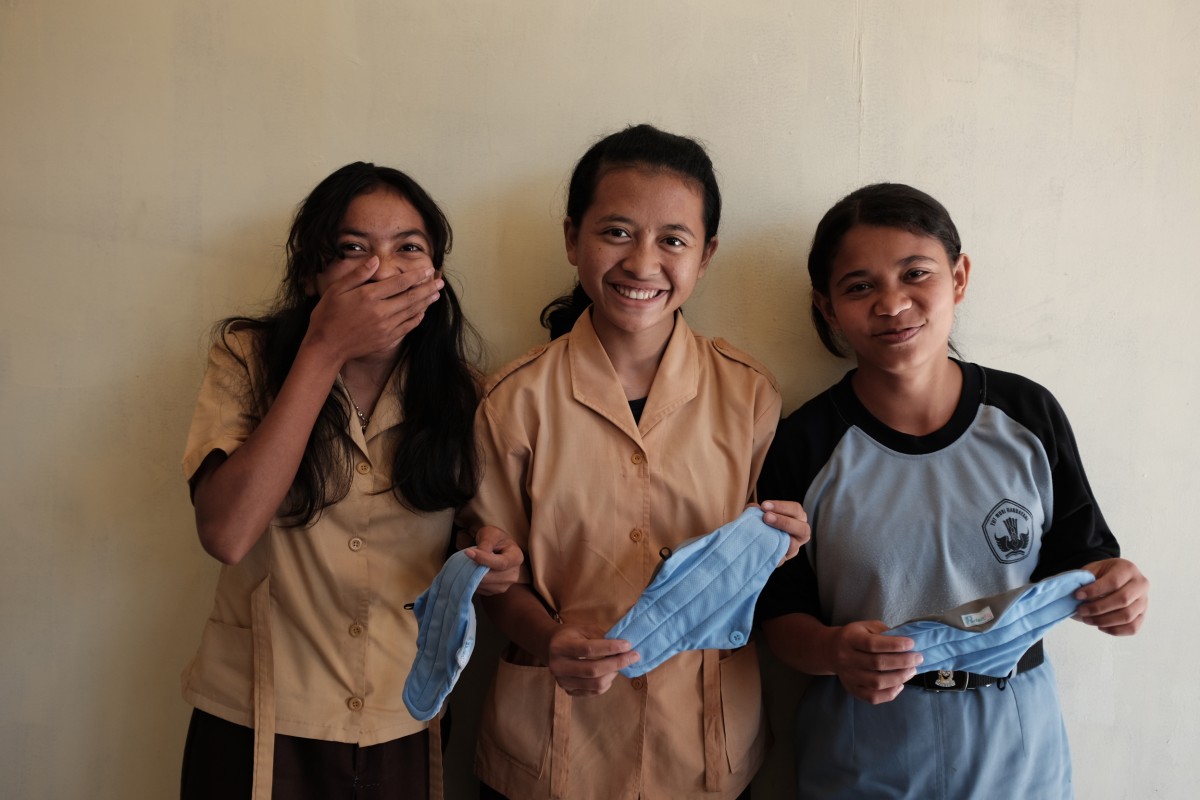Menstrual health in Indonesia: this is why we need to do more
Column for Menstrual Hygiene Day by Angelina Yusridar Mustafa, programme coordinator and programme development officer of the Indonesian Perfect Fit project at Simavi.
It’s not an easy thing to talk about menstruation in Indonesia. It’s not an easy thing to talk about all the restrictions that women face because menstruation is considered a dirty thing in many religious communities in my country.
Why talking about menstruation is difficult
It’s not an easy thing to talk about why women can’t wash their hair or clip their nails or go to prayer or cook certain foods during their menstruation. It’s not an easy thing to talk about menstrual products and discuss the merits and problems connected with menstrual products, such as single use pads that are itchy, irritating and uncomfortable in a warm climate.
It’s not an easy thing to explain to teachers or school masters why it is so important for girls to have access to safe toilets and water during their menstruation. Because from their male perspective there’s not a real problem when toilets don’t have a lock, space to change your menstrual pad and water to wash your hands. Or when you have to share one dirty toilet with a hundred classmates.
It is not an easy thing to convince government officials that eradicating open defecation is not enough when it comes to water and sanitation objectives. That the provision of toilets based on women’s needs is an absolute priority. That girls are reluctant to change their pads, are getting sick and are being bullied by boys when they show leakage. That girls are losing confidence, skipping school or dropping out of the workforce because of that.

Menstruation: too important to ignore
And yet we really should. Not only on Menstrual Hygiene Day, but every day. Even when it is difficult. Even when we face resistance because parents or other people feel that this is ‘breaking with our culture’. That this is an issue coming from the West. That this is an issue men and boys should not be bothered with. Because it is too important.
The good news is that we have seen a lot of progress since we started raising awareness in 2017. In just five years we have been able to have many open discussions with girls and women, but also with boys and men. And during this period, we have booked success with our programme The Perfect Fit, in which women are producing and distributing reusable menstrual pads in several rural areas and educating men and women about menstrual health.
What does it take to make menstruation a normal fact of life by 2030?
But we are not there yet. Yes, it has become easier to get access to good information about menstrual health. We have the connections on local and national level with governments. And yes, we are developing guidelines and a good curriculum on menstrual health for schools and communities. And I am proud of that. But our ambition should be greater than that. We need to tackle the male perspective; we need to fight gender inequality. We need both the support of international NGOs and the political will of our government officials to achieve that. To make sure that by 2030 every girl and woman in Indonesia has access to safe sanitation and is able to manage her menstruation with her preferred product and without stigma.
Angelina Yusridar Mustafa
As the programme coordinator and programme development officer of the Indonesian The Perfect Fit programme at Simavi, Angelina Yusridar Mustafa is committed to menstrual health for all: every girl and woman should have access to safe and private toilets during their menstruation. And people who menstruate should not experience stigma.

